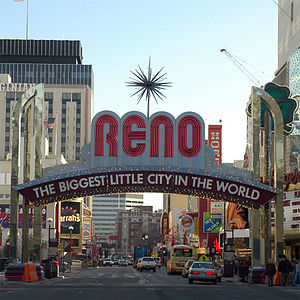
The tax system in the United States (and most countries) is broken. Organizations like OccupyWallStreet and their predecessors have been pointing to the corruption of banks, politicians, and rich individuals as a driving force for the financial inequality that exists everywhere. Most tech companies have gone relatively-unscathed for their own practices, but in a world where virtual goods rake in billions in profits for some, should the spotlight be pointed on them as well?

Apple is the focus of an article in the NY Times that shows how that company and many like it are avoiding paying billions in taxes to state, federal, and global governments. With an office in Reno, Nevada, the company is able to avoid much of the 8.84% tax they would pay from their corporate office in California. They have offices in Ireland, the Netherlands, Luxembourg, and the British Virgin Islands to give them venues from which to do business worldwide while taking advantage of the tax breaks associated with these countries.
In some cases, the “office” is little more than the local equivalent of a post office box.
They aren’t alone. The growth of the digital economy has made it extremely profitable to focus on royalties from intellectual property such as patent licensing, virtual products such as media downloads, and software that can be shipped or sent digitally from places in the world where taxes are lower. It’s all legal. It’s all expected as part of running a “smart” business plan.
The tax codes were built based upon an industrial age. Logistics made it impractical to base companies that rely on physical goods in locations that were great for taxes but far from consumers or distribution centers. In an industrial-based economy, the tax system worked better. Today’s economy shows that the tax system is completely outdated.
There are 71 companies classified as tech firms on the S&P 500 index. On average, their overall tax rate was 1/3rd lower than the other 429 companies on the list. Apple is at the extreme end of this list; last year they paid $3.3 billion in taxes against $34.2 billion in profits (9.8%) versus Wal-Mart which paid $5.9 billion against $24.4 billion in profits (24.2%).
In a statement, Apple said it “has conducted all of its business with the highest of ethical standards, complying with applicable laws and accounting rules. We are incredibly proud of all of Apple’s contributions.”
The contributions have indeed been significant, but they are small compared to those who are stuck putting products on trucks and shipping them out to the world.
Re-evaluating taxes without hampering innovation
It’s human nature to try to give less when possible. The legal methods that technology companies use to minimize their taxes do very little to take away the tax burden of individuals or to improve the quality of life that is enabled by government programs. If we’re going to fight for higher taxes on the rich, shouldn’t we fight for higher taxes on the mega-companies that get around them?
The biggest argument against adjusting the tax code to reduce tech company loopholes is innovation. We love our iPads. We rely on Google search. We type our reports on Microsoft Word and buy our products from Amazon. These companies are able to provide their services and innovations based upon the profits that they make doing so and increasing their taxes could stifle their abilities to innovate and improve the technology that powers our lives.

Still, it’s clear that the tax code benefits them while hurting others. Should there be an increase in taxes on virtual goods and licensing profits that brings them in line with companies that rely on physical products? Is there enough money floating around in the digital world to keep innovation moving forward while improving government’s ability to serve and reducing the burden on individuals?
More importantly, can the loopholes be filled when there are so many governments that would need to agree on a plan to make it truly work? A model that works in bits and pieces will only show the tech companies’ cleverness in the way they reorganize their taxable infrastructure.
It’s a problem that may have no real solution, but that doesn’t mean that we shouldn’t try to find one if it does exist.

Leave a Reply